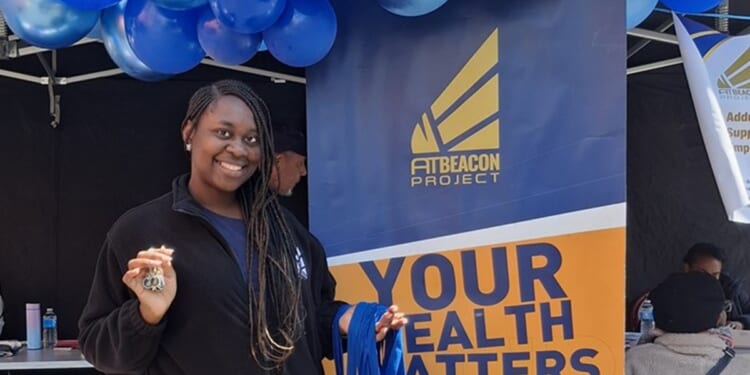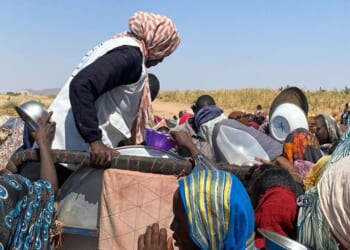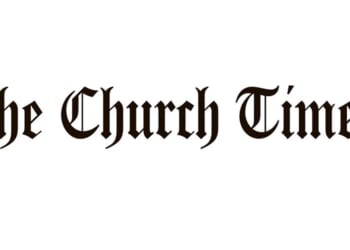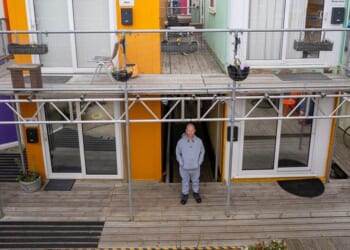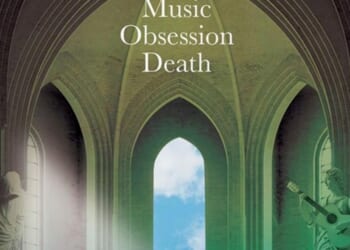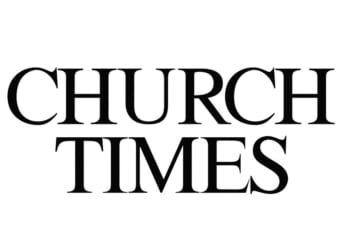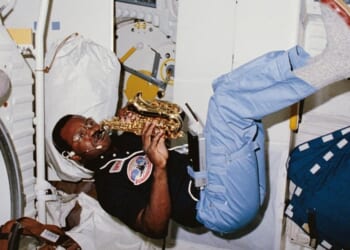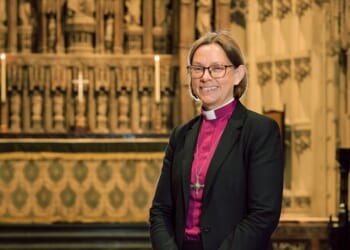“JESUS asked us to do only two things: to make new disciples, and to heal the sick”, the chief executive of the Guild of Health and St Raphael (GoHealth), the Revd Dr Gillian Straine, says.
The ecumenical charity has been helping churches to be centres of healing and well-being since 1905. Besides offering theological training courses on healing, and the GoHealth Community (to support people on their own well-being journeys, or those with a desire to see others experience healing), in 2021 GoHealth launched its Healthy Healing Hub (HHH) initiative, with its first partner church at Christ Church, Southgate, in north London.
After a period of theological training in Christian healing ministry (including developing good practice, safeguarding, and lay involvement), the clergy team at Christ Church started to hold a eucharist with optional anointing, and prayer with the laying on of hands (a service in Common Worship). The eucharist continues to be held on every first and third Tuesday of the month.
GoHealth is currently in partnership with 11 churches to develop Healthy Healing Hubs (eight in England; one in Scotland; two in Wales). While each hub differs, according to local needs and resources, to become an HHH all churches must complete GoHealth’s “Everyday Healing Course” on Zoom, before the PCC (or equivalent) makes a commitment to, and signs, GoHealth’s HHH Good Practice Charter. Becoming a hub costs £10 per month.
Unique to GoHealth’s offer to its church partners is its “cutting-edge” work on the interplay between science and faith, Dr Straine says. “We take science and religion seriously. We’re saying God works through doctors, but that Christ offers the highest form of healing through the resurrection.” That ethos plays out in all of its hubs.
The Revd Ian Williams runs the hub at St James’s, Holywell, in north Wales, which was transformed into a well-being centre (with the support of a Welsh government grant) after its parochial activities moved to a larger church. “We try to provide Christian healing that is physical, emotional, spiritual, and mental,” Mr Williams says.
GoHealth trained different tiers of volunteers for the café, church, and pastoral care — the latter also receiving training from the diocese — and the hub blends clinical and spiritual care, hosting a weekly NHS long-Covid clinic, and a parish nurse whose job permits her to blend clinical and spiritual care. “She can take your blood pressure and pray for you,” Mr Williams says.
Besides providing clinical care and well-being services, including a café, knit-and-natter, and chair aerobics (recognising the healing currency of a cuppa and a kind word), St James’s is clear that it looks “to draw people to Christ”, Mr Williams says.
To this end, it also provides Christian prayer spaces, prayer days, meditation, and a weekly eucharist with prayer for healing. “Jesus’s ministry was a healing ministry. Everything he did was about healing. At our weekly eucharist, we offer prayer for healing with anointing oil and the laying-on of hands, and try to show healing in Christ,” Mr Williams says.
At Lichfield Cathedral, the partnership with GoHealth developed in response to the cathedral’s team feeling that it needed to work in partnership with others to strengthen its healing ministry. “We find, as a cathedral, people can just walk in at real moments of crisis,” the Dean of Lichfield, the Rt Revd Jan McFarlane, says.
GoHealth’s involvement is enhancing the cathedral’s vision of offering “holiness, hope, hospitality, and healing”, Dean McFarlane says. GoHealth helped the cathedral in its response to trauma after Covid, and is supporting Lichfield’s ambition, over the next five years, to develop “excellence in pastoral care from the cradle to the grave”, Dean McFarlane says.
The cathedral now holds monthly healing services, with anointing, in the Lady chapel, after its 10.30 a.m. eucharist. The cathedral staff now also view visitors through a healing-ministry lens: “Vergers are like paramedics, who scoop people up. The chaplains are like the triage team who assess what’s going on, and the residential clergy are available, like doctors, for referral,” which can also mean referral to statutory services, the Dean explains.
GoHealth continues to inject expertise and training through preaching on healing, staff workshops, help for healing services, and trauma-awareness training, and in supporting Lichfield’s vision of developing dementia and bereavement cafés.
The Dean also recognises that the cathedral has resources that parish churches lack and is looking to act as a “mother church”, welcoming people from other parishes to make use of its what it particularly has to offer.
IN SOUTH London, the Ascension Trust — the inter-denominational charity behind Street Pastors — also launched a healing-hub initiative in 2021.
Ascension Trust’s “beacon hubs” focus on addressing health inequalities, and were established in response to the low uptake of Covid vaccines among some ethnic minority communities.
Now, beacon hubs work with primary-care agencies to engage with communities on health issues such as diabetes, hypertension, obesity, and cancer awareness and symptoms, as well as to promote the values of healthy eating, exercise, and weight-loss.
But their defining feature is their partnership with under-served communities, a Beacon project manager, Helen Ewulo, says. “We aim to target communities that may either feel left out, or possibly self-exclude, from health care, and to be a face in the community that is trusted.
“We identify, with partners, areas where we’d be of benefit, and meet people where they are: in the middle of Brixton Market, or faith places like churches and mosques.”
The Ascension Trust established the first beacon hub in Lewisham, and, over time, began working with the London Borough of Lambeth. Currently, Beacon Hubs operates health and well-being drop-ins in three locations in the borough: a community shop in West Norwood, a barbers’ shop in Streatham, and a community centre in Stockwell.
Public Health Lambeth provides health professionals at all the hubs, while the Ascension Trust trains volunteers, many of whom are drawn from local churches, to work as peer educators. Each hub’s focus is practical, not spiritual, and includes services such as blood-pressure checks, mental-health support, and limited-time services such as its “fruit and veg prescription” scheme, tacking food inequality by providing vouchers for recipients to buy fresh fruit and vegetables.
THE healing-hubs model developed by Acorn Christian Healing Foundation has grown out of the ministry established by the Rt Revd Morris Maddocks, who established the Acorn Christian Healing Trust in 1975, and served as an adviser to the Archbishops of Canterbury and York on the Christian healing ministry.
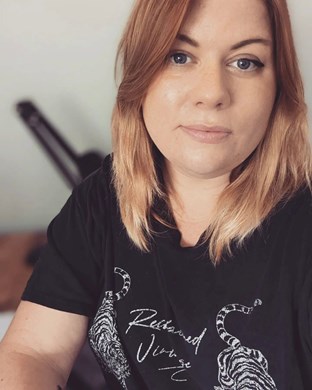 Acorn’s director of operations, Lisa Way
Acorn’s director of operations, Lisa Way
Developing from a single retreat centre at Whitehill Chase, Hampshire, Acorn’s director of operations, Lisa Way, says: “Around 2018-19 we felt called to go out and have hubs in local communities led by local people. The vision became to start training individuals for the skills they need for healing ministry.”
The first hub opened in 2019 at St Albans, in Hindhead, Surrey. Currently, there are eight healing hubs, including one at Guildford Cathedral, and one digital hub offering Zoom prayer appointments. The aspiration is a hub in every diocese. There is no cost to becoming a healing hub with Acorn, as Acorn Christian Healing Foundation covers the costs of training and publicity through donations.
The Guildford healing hub developed from a small group who spent a year praying and seeking to discern God’s direction. This culminated in a successful approach to Guildford Cathedral to host their hub. It opened in January 2024 as a monthly hub, and is now complemented by a weekly healing hub at St Luke’s, Burpham.
“We give people a safe, confidential place to just talk. Some start with a physical [problem], but soon the layers come off to something deeper,” Lynn Edge, part of the Guildford hub and a Baptist, says. Mrs Edge emphasises that the team are not counsellors and do not give advice. Instead, healing-hub ministry teams work in pairs to pray for individuals who attend their drop-ins.
Acorn trains healing-hub co-ordinators and volunteers to run hubs through its Acorn Healing Academy, which delivers a six-month online Bible-based course exploring themes such as: healing in crisis, mental health and Christian healing, trauma- informed ministry, the body and healing, and forgiveness and inner healing. This study is complemented by observational placement at a hub.
Acorn welcomes approaches from churches and individuals wanting to explore the idea of developing a healing hub, and to discuss objectives and needs, including venues, recruitment, safeguarding, and training, before deciding whether to make a formal application. Once a hub is approved, Acorn promotes it and provides insurance, supervision, training, and support.
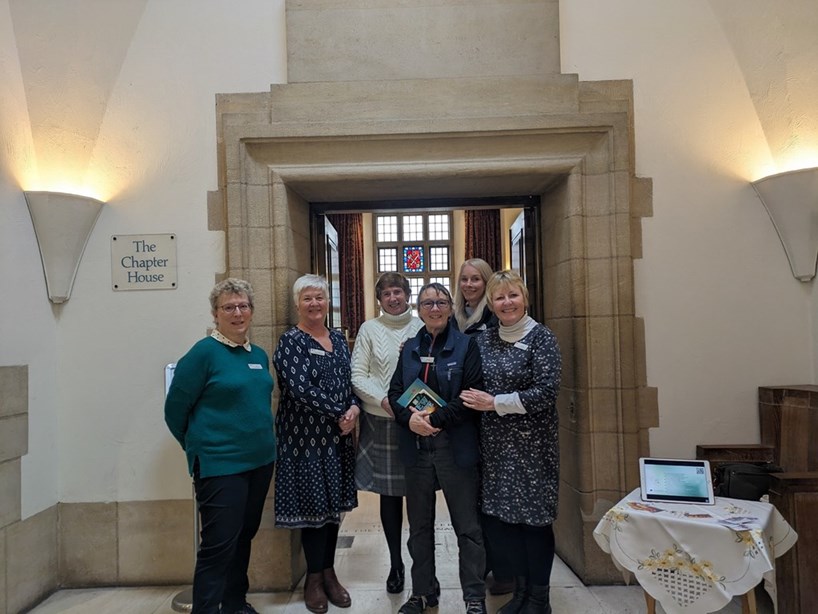 Acorn’s healing-hub team at Guildford Cathedral, photographed in April last year, with Lynn Edge (second from left)
Acorn’s healing-hub team at Guildford Cathedral, photographed in April last year, with Lynn Edge (second from left)
Elisabeth Wright is co-ordinator for the Lincolnshire hub, which emerged as Christians in the area involved in healing ministry looked to meet “overwhelming need” there. “It took a year to get the team together for training and engagement with local churches,” she says, before a monthly hub opened in 2022 at the Storehouse Church, Alford, where some of the hub team were church leaders.
The team have since approached the NHS to locate the healing hub at the church’s Night Light Café, an out-of-hours non-clinical mental-health service, which operates every night of the week at various locations across the county (Features, 4 April 2025), and runs 5-8 p.m. every Thursday at the Storehouse Church.
“The NHS were very happy for us to pray,” Ms Wright says; and so the Lincolnshire hub has evolved and expanded.
HUB teams talk about ways in which healing charities inject expertise, training, and practical help to strengthen the healing ministry that they are able to offer — whether for sickness, wholeness, or reconciliation.
The Beacon Project has found that embedding intervention in trusted community settings has delivered positive health outcomes: seven in ten users have experienced significant reductions in blood pressure recorded by GPs and nurses; 80 per cent of participants now pursue five-a-day fruit and vegetable consumption; and there has been a 30-per-cent increase those who had never had routine health checks but are now doing so. Users have also said that the hubs improve their lifestyle, both their diet and mental health.
Hubs also show willingness to hold the complexity of illness, trauma, and death, with the mystery and hope of Christ’s healing power. As Dr Straine says, “We regularly hear stories of healing from our hubs and from across the GoHealth Community. Sometimes that healing is sudden; other times, it unfolds slowly.
“We also hear stories where prayers go unanswered — stories spoken through honest voices of anger and sadness. It is never easy to understand why this happens. Yet what remains true, always, is that, whether or not our prayers are answered in the way we hope, God is with us in our suffering and pain.”
Dr Straine emphasises Jesus’s promise of life in fullness “not just when we are shiny and healthy, but in the messiness of life”. At Lichfield, Dean McFarlane also communicates “healing as something much bigger than health; but the ultimate healing is death,” pointing people to the cathedral’s icon of Christ both crucified and risen.
Acorn also balances the joy of healing with the lived experiences of illness and wounds. Mrs Way reports evidence of miracles: at the Northern Ireland hub, a woman was healed from trigeminal neuralgia — a condition causing chronic pain on one side of the face — after prayer. Sore and stiff hands that impeded daily life were healed on a Zoom call during prayer time at an Academy training session.
Mrs Way also recounts stories of emotional healing: a lady with challenging life circumstances, whose healing began with a visit to the Hindhead hub; and of God’s meeting those with spiritual wounds through the safe spaces that Acorn offers people to talk about their pain and journey together. “We’ve seen healing of body, mind, and spirit that remind us God’s mercies never end.”
But Mrs Way agrees that Christian healing permeates to the deepest level of our humanity. “Healing is very much about transformation, where everything about you starts to be more aligned with Christ. I do believe in healing miracles, but healing is very much a journey and a life lived with Christ.”
Dr Straine reflects: “Medical science cures, but the Christian faith offers healing.”
Sharmila Meadows is a freelance journalist. A former Westminster senior policy adviser, she writes on cricket, faith, and politics.
X@WritingDesk27.

